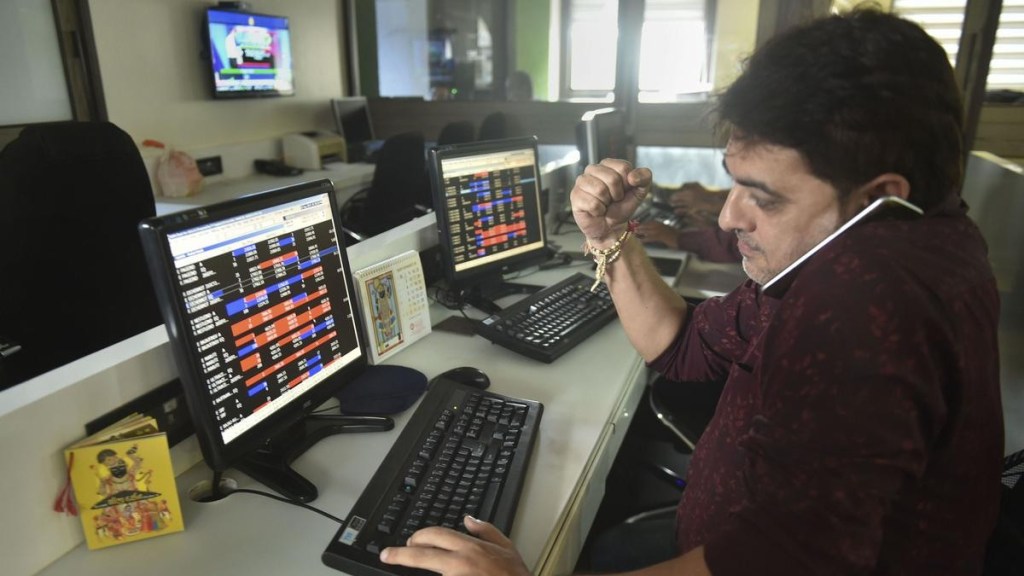Foreign institutional investors (FII) offloaded shares worth net Rs 84.55 crore, while domestic institutional investors (DII) added shares worth net Rs 524.47 crore on November 8, 2023, according to the provisional data available on the NSE.
For the month till November 8, 2023, FIIs sold shares worth net Rs 4,195.63 crore while DIIs bought shares worth net Rs 3,691.98 crore. In the month of October, FIIs offloaded shares worth net Rs 29,056.61 crore while DIIs added equities worth a net Rs 25,105.86 crore.
“Domestic equities remained range bound amid mixed global cues. Nifty traded in positive territory throughout the session and closed with modest gains of 37 points at 19444. Broader market continued to outperform with Nifty midcap 100 up 1% while smallcap 100 up 0.7%. Sectorially it was a mixed bag with buying seen in Pharma, Realty and Oil & Gas. After witnessing recovery in the last week, market is now in a consolidation mode and we expect slow and steady upmove till the festivity. Investors awaited comments from Fed Chair Jerome Powell to get view on US central bank’s future course of action,” said Siddhartha Khemka, Head – Retail Research, Motilal Oswal Financial Services.
Previously on Wednesday, the NSE Nifty 50 added 36.80 points or 0.03% to settle at 19,443.50, while the BSE Sensex gained 33.21 points to 64,975.61.
Foreign institutional investors (FII) or Foreign portfolio investors (FPI) are those who invest in the financial assets of a country while not being part of it. On the other hand, domestic institutional investors (DII), as the name suggests, invest in the country they’re living in. Political and economic trends impact the investment decisions of both FIIs and DIIs. Additionally, both types of investors – foreign institutional investors (FIIs) and domestic institutional investors (DIIs) – can impact the economy’s net investment flows.

